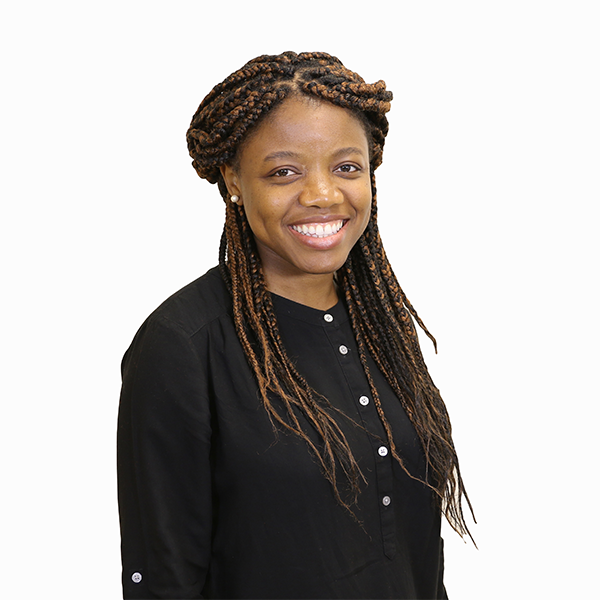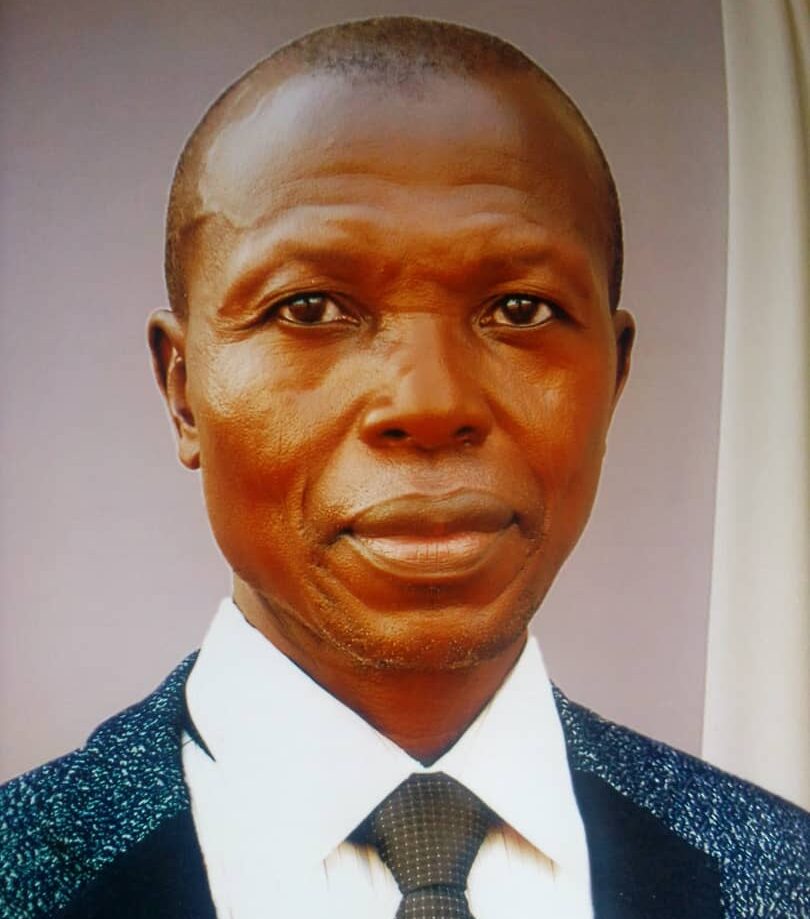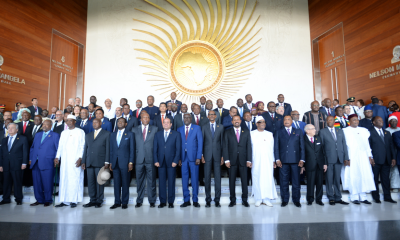Education
African academics launch initiative to collate COVID-19 data across Africa, call for volunteers

Dr Vukosi Marivate
Computational epidemiologist and Assistant Professor of Global Health at Boston University Dr Elaine Nsoesie and University of Pretoria Senior Lecturer in the Department of Computer Science Dr Vukosi Marivate have launched an initiative to collate Covid-19 data across Africa and are calling for volunteers to join the project.
The first confirmed case of COVID-19 in Africa was reported in Egypt on 14 February. The patient was a Chinese national who had recently arrived in Cairo. As of 27 March, more than 2,400 cases have been reported across Africa. South Africa, Egypt and Algeria have the highest number of cases – 927, 495, and 367 cases, respectively. Most African countries are reporting new cases every day.
Earlier this year, a group of epidemiologists led by Dr. Moritz Kraemer at Oxford University started collating data on the epidemic in China. This effort has grown to include contributions from around the world.
As part of this global effort, Dr Nsoesie and Dr Marivate have put together a team of more than twenty volunteers from across Africa to develop an open dataset of cases as they are reported.

The dataset includes patient demographics, date of diagnosis, location, symptoms, travel history, source of information and other necessary information. The location data is at the city, town or village level, and does not include household geographical coordinates so as to preserve individuals’ privacy.
The initiative obtains the data from official sources such as the World Health Organisation, Ministries of Health and Africa CDC, as well as unofficial sources like online news sites.
Also Read: Ensuring that Hunger does not Kill more people than COVID-19 in Africa
These data have many uses. It can help us understand the spread of the SARS-COV-2 in Africa, epidemiological characteristics of cases and how it compares to reports in other parts of the world. The data can also be used in models to study the impact of various interventions, such as social distancing and for making recommendations on resource allocation.
For example this dashboard developed by Dr Marivate and colleagues provides a picture of COVID-19 in South Africa, based on currently available data.
The data collation initiative is calling for more volunteers who can help in collating data. Data collation can be a tedious effort for a few people, but many contributors will make the task easier. Those interested in joining this effort can send an email to onelaine@bu.edu and also look at Github Repo for additional instructions.
The initiative is also looking to support data collection efforts by Ministries of Health (MoH) in Africa by connecting them with volunteers in Africa. Volunteers with technical and public health expertise can support the collection, organisation, and visualisation of relevant data on MoH websites. The rapid increase in new cases is putting a significant burden on the health ministries and impacting the reporting of data. This is understandable because MoHs are addressing multiple challenges at this time – including tracking, testing, and quarantining cases – while implementing social distancing and other public health measures to control the local epidemics.
“We want to encourage everyone to follow the advice of public health experts and clinicians who are dedicating their time and lives to fighting this pandemic in Africa. Stay safe and healthy,” said Dr Nsoesie and Dr Marivate.
About Dr Elaine Nsoesie and Dr Vukosi Marivate
Elaine Nsoesie is a Computational Epidemiologist and Assistant Professor of Global Health at Boston University. She was born and raised in Cameroon. You can contact her by email at onelaine@bu.edu or Twitter: @ensoesie.
Vukosi Marivate is the ABSA UP Chair of Data Science and a Senior Lecturer in the Department of Computer Science, University of Pretoria. He leads the Data Science for Social Impact research group. Vukosi is also a visiting Principal Data Scientist at Council for Scientific and Industrial Research, South Africa. You can contact him by email vukosi.marivate@cs.up.ac.za or Twitter @vukosi.
Education
BAO Exclusive with Dr. Musa Akinyemi, Rector of Crown Maritime Academy

Dr. Musa Akinyemi is an experienced Rector with a demonstrated history of working in the maritime industry. He is currently the Rector/CEO of Crown Maritime Academy, CMA a go-to maritime training institution. In this interview with Alaba Ayinuola of Business Africa Online (BAO), Dr. Musa shares more insights on the maritime training institution, its certifications, milestones and much more. Excerpt.
Alaba: Could please tell us about Crown Maritime Academy and your role?
Dr. Musa: Crown Maritime Academy, CMA was muted as an experiment in 2011. That was 10 years after my return from exile in Cote d’Ivoire having suffered insecurity as Gen. Sani Abacha deprived me of my Federal Government employment without any reason in 1996. Between 2011 and 2014, just within 3 years of existence, the Academy was recognized as a Centre of Academic Excellence by the Commonwealth in London and Listed in the 2014/2015 Edition of the Commonwealth Education Ministers Publication. In addition, Crown Maritime Academy, CMA was also featured Online by the Commonwealth Education Partnerships (CEP) of London.
My role from the onset was strategically collapsed between Lecturing and Administering. Thus, I chose to be addressed with the status of Registrar. Yet, I had to decide and also design courses to offer as well as which curriculum to evolve or develop. Therefore, I added the CEO title, even as Registrar. That made me search for a seasoned and very resourceful postgraduate fellow who became the Rector.
Alaba: What sets Crown Maritime Academy apart from other Maritime Academy and how is it positioned to be the go-to institution?
Dr. Musa: This Academy has been set apart uniquely, abinitio, because we envisioned and delivered an Academy with a qualitative, affordable and available platform capable of achieving pan-Africanism, especially the African youth emancipation.
Already, we have commanded progressive credibility and stable camaraderie with fellow academies and universities locally and in the diaspora. It is expected that continuity, creativity and just-in-time delivery of our programmes would position Crown Maritime Academy, CMA as a go-to maritime training institution.
Alaba: Please tell us about the certifications offered, accreditation and opportunities that come after completion?
Dr. Musa: The Academy started with Diploma award for 2 years programme, at the end of which, after some 1 year practice in the industry, awardees could return to do the Advanced Diploma. Indeed, it was a sound and recommendable beginning. What we are doing now is to fully blend with the Federal Ministry of Education’s regulatory framework so as to start the National Innovative Diploma (NID) or National Diploma (ND) in our own name.
Many of our graduates are already engaged in the military, para-military, port operations and the like, while a few others have set-up their own businesses.
Alaba: Can you highlights some of your significant milestones and challenges?
Dr. Musa: Crown Maritime Academy, CMA is at the forefront of sustainable maritime education and training in Nigeria. In 2021, our senior management team was specifically selected and sponsored to conduct a Facility Tour of the Federal Government-owned Maritime Academy of Nigeria (MAN) at Oron, Akwa Ibom State. The only private maritime training institution in Nigeria to be so recognized.
Don’t forget also that we produced the Best-Graduated Shipping Management Student in Nigeria in 2017/2018. In 2018/2019, we repeated the academic feat by also producing the Best-Graduated Shipping Management Student in Nigeria. We are equally among those leading in Transport and Logistics Management, as we produced the Best-Graduated in this specialization in Nigeria in the 2020/2021 session.
Meanwhile, our challenges remain, namely, the harsh and unsupported maritime domain plus the capital intensive nature of providing tertiary education.
Alaba: What is your overall assessment of the entire situation of Nigerian maritime training and capacity building?
Dr. Musa: We are still operating at 50 % capacity. Most sincerely though, if not for the resuscitation of the MAN Oron by the current Rector, Rtd. Commodore Effedua, the capacity could have been far lower.
So, let it be known that with the MAN Oron bouncing-back, the Federal Government would get the graduating cadets the much-needed training vessels and, as a matter of urgency, float an ocean-going fleet to employ them. Of course, training should, from this achievement, become a life-long development.
Alaba: What are CMA priorities/plans for the year and where do you see the academy in the next 5 years?
Dr. Musa: Our current priorities include moving to our permanent site as well as to smoothly and successfully partner with the Federal authorities in respect of educational qualifications, regulations, standards, control and compliance.
I am very confident that foreign students would regularly seek admission and come to study at Crown Maritime Academy, CMA in Nigeria.
Alaba: Your advice for students and professionals in or aspiring to go into the maritime sector?
Dr. Musa: The first advice from me is that they should not fail to understand the importance of triple “T” or T raised to power 3. The first T is Time, they should not be looking for how to cut corners or abuse the process. Let them give all the time needed to study! The second T is for Talent. This means that they should not come empty and go back empty, they should be loaded with effervescent intellectual deposits!! Finally, the third T, which stands for Trust. This is to say that you can not excel and sustain the lucrative life of a shipping professional if colleagues and the stakeholders can not trust you.
Education
The Space Prize Foundation and UNESCO partners to propel Space Education across Africa

The Space Prize Foundation announces the launch of its partnership with UNESCO, aimed at democratizing access to space education and inspiring a new generation of female scientists and engineers in Africa. Despite sixty years of space exploration, women are grossly underrepresented in the space industry, making this initiative potentially transformative on the educational landscape and, ultimately, the future of space exploration.
Starting in Rwanda, this visionary partnership will unfold over the next several months as both organizations meticulously plan the framework for the implementation of the Space Prize Foundation’s Space Education Curriculum. The initiative is designed to equip teachers across Africa with the tools and resources they need to empower young minds, particularly young women, to pursue careers in scientific and engineering fields. The open source curriculum is the first of its kind and was developed by leading science teachers across the United States of America.
Key elements of this initiative include:
Survey for Teacher Development: The Space Prize Foundation will conduct a comprehensive survey to identify the specific needs and levels of development required by teachers. The survey will delve into teaching styles, current practices in space education, and the resources available to educators.
Workshops for Curriculum Implementation and Teacher Empowerment: UNESCO and the Rwanda National Commission for UNESCO will identify participating teachers. The first workshop will provide participating teachers with an introduction to the Space Education Curriculum. A leading expert in space education will guide teachers in customizing the curriculum for their students and schools. The second workshop will be dedicated to Q&A, ensuring teachers have time to digest the curriculum.
Curriculum Reception: Following the initial workshops, teachers will be encouraged to present the tailored curriculum to their students at least twice a month. Feedback from this implementation will be reviewed in two 90-minute workshops to discuss the curriculum’s reception.
Structured Roll-out in Q2 2024: The formal launch of the curriculum is scheduled for Q2 2024, during which the Space Prize Foundation, UNESCO and participating teachers will design the cadence of classes and schedule monthly review sessions. This flexible approach aims to cater to the unique needs and capacities of different educational settings.
Impact Assessment: UNESCO will design an impact survey to measure the effectiveness of the Space Education Curriculum.
By commencing this journey in Rwanda, the Space Prize Foundation and UNESCO are laying the groundwork for a transformative educational initiative that will resonate across the continent. This partnership embodies a commitment to fostering the next generation of space enthusiasts, driving innovation, and building a brighter future for humanity.
Education
Ubongo Celebrates 10 Years of Transforming Education in Africa

Ubongo, Africa’s leading children’s edutainment and media company, is excited to announce its 10-year anniversary, marking a decade of transforming education and empowering millions of children across the continent. With an impressive portfolio of educational programs including Akili and Me, Ubongo Kids, and the recent addition of the captivating new show Nuzo and Namia, Ubongo continues to set the standard in innovative learning experiences for kids.
Since its founding in July of 2013 in Dar es Salaam, Tanzania, Ubongo has been dedicated to providing fun, localized, and multi-platform educational content that helps children foster a lifelong love of learning. Through accessible technologies like TV, radio, and mobile phones, Ubongo has reached over 32 million families across Africa, making a significant impact on the continent’s education landscape. Independent research studies examining Ubongo’s programs have consistently revealed their profound impact, enhancing school readiness, improving learning outcomes, and fostering positive social and behavioral change among both children and their caregivers.
Over the past 10 years, Ubongo has grown from a small Tanzanian grassroots startup to a Pan-African non-profit organization and the market leader in African edutainment. Ubongo’s innovative and engaging edutainment programs empower kids with the knowledge and critical skills they need to change their lives and their communities for the better.
“We are thrilled to celebrate this incredible milestone of 10 years,” said Mwasi Wilmore, CEO of Ubongo. “It is a testament to the hard work, dedication, and passion of our team, partners, and supporters who have believed in our mission and contributed to our success. Together, we have made a significant impact on education in Africa, and we are committed to continuing our journey of transforming learning for generations to come.”
In commemoration of this significant milestone, Ubongo has arranged a special 10-year anniversary event in Dar es Salaam to celebrate the accomplishments and milestones achieved throughout the years. The event will feature inspiring speeches and captivating presentations showcasing the journey and impact of Ubongo’s edutainment programs.
“We invite all our partners, supporters, and stakeholders to join us in celebrating this significant milestone,” added Mwasi Wilmore. “Together, let us reflect on our journey, express our gratitude, and renew our commitment to providing quality education and transformative learning experiences for children in Africa.”
“As we look ahead to the next decade, we remain steadfast in our mission to reach even more children, leveraging the power of edutainment to unlock their potential and shape a brighter future for Africa,” added Mwasi Wilmore.
-

 Afripreneur9 hours ago
Afripreneur9 hours agoRedefining Real Estate Marketing: An Interview with Imelda Usoro Olaoye, Founder of Thinkmint
-

 Afripreneur8 hours ago
Afripreneur8 hours agoOluchi Anoruo on building SmartPharm and addressing access to healthcare products
-

 Economy13 hours ago
Economy13 hours agoMeta Hosts its First Youth Summit in Nigeria to Drive Innovation and Empowerment
-

 Technology13 hours ago
Technology13 hours agoLG’s Brand Reinvention: A Global Success Story

















